In Franklin, voters hoped the election would move the city forward. Now, one seat will be decided by a paper drawing after a tie.
|
Published: 10-01-2024 10:25 PM
Modified: 10-02-2024 5:36 PM |
Desiree McLaughlin hoped that five words on a yellow sign would sway voters: “Save our tax cap Franklin.”
Instead, a slip of paper will determine who fills one of three open seats on Franklin’s city council, each for a three year term, after a race in Ward 3 ended in a tie.
Valerie Blake, an incumbent, and Al Warner, a former school board member, each received 153 votes in the city council election Tuesday, with one write-in ballot.
The outcome of the race will be determined by a draw of paper slips. Franklin’s city ordinance spells out the process – the city clerk will prepare ten slips of paper, equal in size, labeled 1 through 10. Whichever candidate draws the highest number will be declared the winner.
Blake ran unopposed for her first term in 2021. This year, she faced a vocal endorsement from the mayor for her opponent.
“I wasn’t quite as anxious. I’m a little anxious this time,” she said outside the polls on Tuesday. “The difference is, I think the community, the environment is a little bit on the negative side. There’s an us and them situation going on, which is disturbing.”
The “us and them” mentality was characterized by the yellow signs held by McLaughlin’s prefered candidates. In Ward 1, Bruce Marshall, Thomas Boyce in Ward 2 and Warner in Ward 3.
On Central Street, hanging from the laundromat building, which McLaughlin owns, a banner for the trio read “Turn the page 2024, Marshall, Boyce, Warner.”
Article continues after...
Yesterday's Most Read Articles
 Webster seized and sold his house for back taxes. Now the town has agreed to pay him $38,000
Webster seized and sold his house for back taxes. Now the town has agreed to pay him $38,000
 City considers proposal for sanctioned homeless encampment
City considers proposal for sanctioned homeless encampment
 Hillclimbs, nightlife and cruising: Enthusiasts flock to 102nd Laconia Motorcycle Week
Hillclimbs, nightlife and cruising: Enthusiasts flock to 102nd Laconia Motorcycle Week
 A Webster property was sold for unpaid taxes in 2021. Now, the former owner wants his money back
A Webster property was sold for unpaid taxes in 2021. Now, the former owner wants his money back
 ‘The rug pulled out from under me’: For certain police and firefighters, last-minute changes to retirement deal breeds distrust
‘The rug pulled out from under me’: For certain police and firefighters, last-minute changes to retirement deal breeds distrust
 Preparing to say ‘I do’ – Inside the love story taking center stage at Market Days
Preparing to say ‘I do’ – Inside the love story taking center stage at Market Days
In McLaughlin’s first year as mayor, an eight-hour city council meeting adjourned at 2:30 a.m. She attempted to use her veto powers and councilors overruled her. But whether or not people agree with her – she’s confident to say she’s sparked a new interest, and input, from residents in the state’s smallest city.
“I didn’t actually have to harangue anyone,” she said about encouraging candidates to run. “Last year’s election kind of banded a bunch of people. All of us are frustrated and upset with the way things were.”
When polls closed she had her choice for one ward – Boyce defeated Sam Jacobson in Ward 2. In Ward 1, Delaney Carrier, a longtime Franklin resident and former school board member defeated Marshall.
Voters like Alicia Humphrey, who voted for Carrier over Marshall in Ward 1, weren’t convinced that the tax cap was sufficient reasoning to choose one candidate over the other.
“He just seemed to take interest in Franklin more to heart than just running on lower taxes, which is not sustainable,” she said of Carrier. “You need more meat in your campaign than that.”
Humphrey, who grew up in Franklin and returned as an adult, said the Opera House was her driving factor at the polls.
In a candidate forum ahead of the election, Marshall said he did not support the $6.8 million bond to fix the building, which the city council approved despite McLaughlin’s dissent.
“It’s really helped the community a lot and it’s made it a better place,” she said.
Ahead of the election, Marshall’s candidacy drew speculation from voters about his eligibility to run in the city. He is a homeowner in Bow where his children go to school and he served on the town select board last year.
However, he changed his domicile to Franklin in August to run for the Ward 1 city council seat.
Libby Femenella, a first-time voter and freshman at Plymouth State University, agreed with Humphrey. Her first vote was cast for Carrier, solely for his support of the performing arts in Franklin, which defined her experience in the school district.
“I’m pretty focused on the Opera House because I think it’s an important part of moving forward in the city,” she said.
Across all three wards in the city, several voters repeated the refrain of “moving forward” in Franklin.
To some, that means the revitalization of the city’s downtown – with support for new housing projects like Stevens Mills and investments in recreational draws, like Mill City Park.
Jacobson, a first-time candidate in Franklin, said he moved to the Three Rivers City a few years ago due to the recreational draw.
To others, the sentiment of moving forward was rooted in a sense of community. The local election, normally characterized by low turnout, created a staunch division online, where candidates and residents took to Facebook to hash out issues.
“It’s a lot of back and forth,” said Boyce. “We are all trying to get the same thing, but we have different ways of getting there.”
Outside the Ward 3 polls, Paul Trudel, a former city councilor, campaigned for Warner. His sign was straightforward – “Blake” with an X through it.
“If it involved an increase in taxes or increase in fees or the city assuming liability, or responsibility for something else that they can't afford, Valerie Blake has been in favor of it,” he said.
Blake knows that some voters haven’t agreed with her record on the council, but she stands by the fact that she does not think the $6.8 million Opera House bond breaks the tax cap.
“I support the tax cap,” she said. “But I also support the tool within the tax cap that allows the city council to either bond for long-term capital expenses, or everyday expenses.”
To voters like Sara Eastman, though, the tax impact that comes with the Opera House bond worried her.
“To me, it’s a thing of needs versus wants and I can’t afford to have my taxes keep going up,” she said. “We have to cut it off somewhere and I think we should have cut it off there."
Sifting through candidate pitches, campaign signs and voter debates on Facebook, Eastman had one clear source to turn to – McLaughlin’s endorsement.
With McLaughlin’s support for Warner in Ward 3, Eastman had no trouble deciding on who to cast her vote for.
“Al, I’ve noticed that he has the support of our mayor,” she said. “She feels the average resident and wants to make sure that we can all afford to live here and don’t get pushed out.”

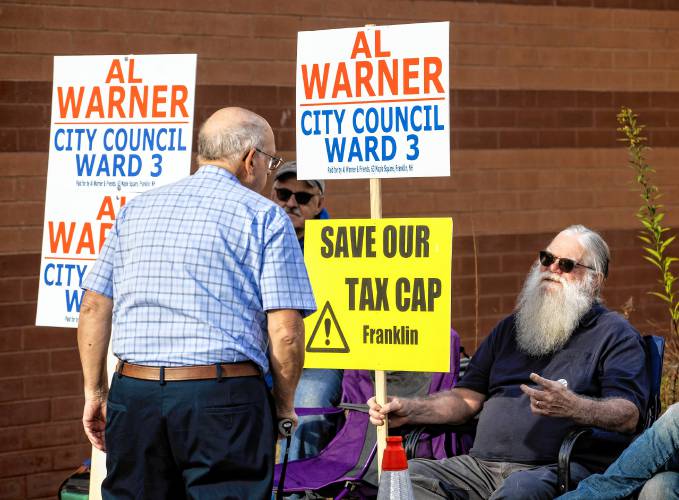
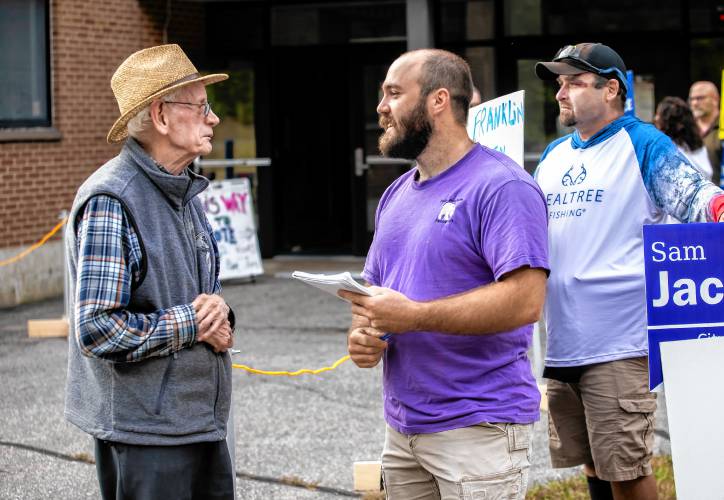
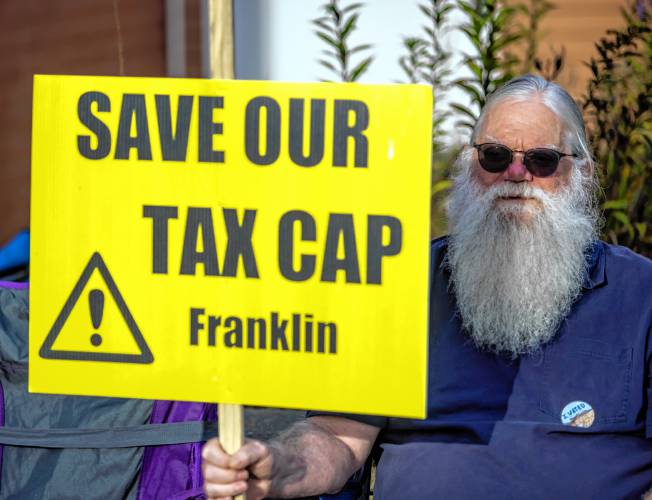
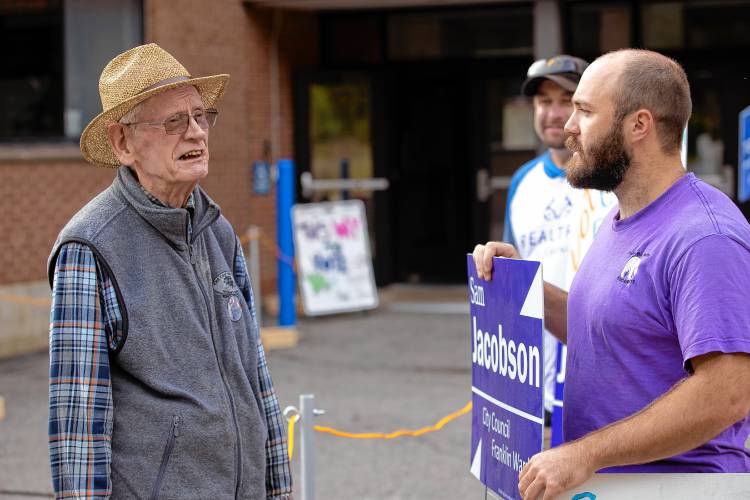
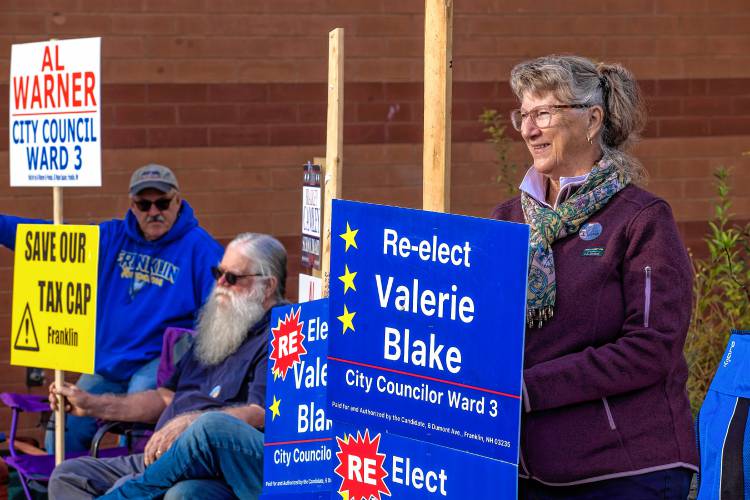






 Concord’s two Rite Aid stores shutting soon
Concord’s two Rite Aid stores shutting soon From morning jokes to parental influence: Bow High Class of 2025 graduates
From morning jokes to parental influence: Bow High Class of 2025 graduates
